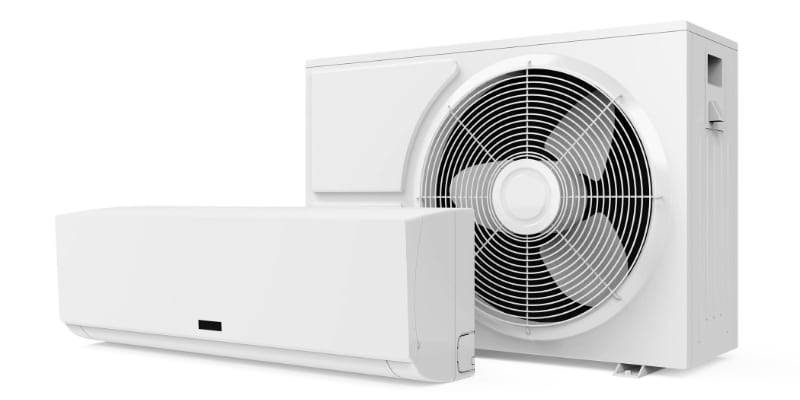Air conditioning, while often seen as a luxury, has become a staple for many students, especially those residing in warmer climates or during the relentless summer months. With the hustle and bustle of academic life, maintaining a comfortable living environment is crucial for productivity and relaxation. Yet, as costs stack up—from textbooks to tuition—it’s vital for students to find ways to minimize their monthly expenses without compromising on comfort.
Understanding the intricacies of air conditioning not only ensures a comfortable home environment but also helps in managing one’s finances better. As students often say, “I’d rather have someone do my paper for me by professionals than skimp on a cool environment to focus on my studies.”
Let’s dive deep into the basics and explore the importance of energy-efficient units to help students save more.
1. Understand the Basics of Air Conditioning
Air conditioning is not merely about cooling the air. It’s a process that involves removing the warm air from an interior space and circulating cooler air in its place. The main components of an air conditioner include the compressor, condenser coil, evaporator coil, and refrigerant. Misusing or overusing these systems can lead to increased energy consumption, not only causing strain on the equipment but also escalating electricity bills.
It’s crucial for students to recognize when to use the air conditioner and at what temperature. Simply turning down the thermostat to its lowest can cool the room quicker, but it can also overwork the system, leading to increased energy consumption and wear and tear on the unit.
2. Choose Energy-Efficient Air Conditioners

With technological advancements, the market now offers a plethora of energy-efficient air conditioning units designed to minimize energy consumption without sacrificing performance. Before making a purchase, always check the energy rating—more stars typically indicate greater efficiency.
An initial investment in an energy-efficient unit may seem steep, especially for students on a tight budget. However, the long-term savings on monthly electricity bills will, over time, offset the initial cost. Additionally, some brands, aware of the student demographic, offer units that combine efficiency with affordability, ensuring you get the best value for your money.
It’s wise to research and perhaps consult with peers or experts before settling on a purchase, ensuring the chosen air conditioner aligns with both the room’s requirements and one’s budget.
3. Regular Maintenance and Cleaning
One of the most overlooked aspects of air conditioner efficiency is the need for regular maintenance and cleaning. Just like a car runs more efficiently when it’s well-maintained, an air conditioner also performs at its best when kept clean and serviced regularly.
Dust, grime, and other particulates can accumulate on the filters and coils over time. This accumulation can cause the system to work harder, using more energy to achieve the same cooling effect and thus increasing costs.
For students, a simple routine of cleaning or replacing filters once a month can make a significant difference. It ensures better air quality, reduces strain on the unit, and keeps it functioning optimally.
While many basic maintenance tasks, such as filter replacements, can be done without professional help, it’s advisable to have the unit serviced by a professional at least once a year. They can check for potential issues, clean internal components, and ensure the refrigerant levels are adequate.
This preventive measure can prolong the life of the air conditioner and keep it running efficiently.
4. Reduce Heat Entry and Retain Cool Air
In the mission to keep rooms cool, it’s not only about how the air conditioner functions but also about managing the environment in which it operates. Taking proactive measures to reduce the entry of heat and retain the cooled air can significantly optimize the efficiency of the AC.
Insulation
One of the first lines of defense against heat is good insulation. Ensuring that walls, ceilings, and especially attics are well-insulated can prevent heat from seeping into living spaces. For students living in older dormitories or rented spaces, temporary insulating solutions, such as window insulating film, can be a cost-effective option.
Curtains, Blinds, and Shades
Sunlight streaming through windows can significantly increase room temperatures. By using reflective shades, blackout curtains, or even thermal blinds, students can block out the intense heat of the sun, making it easier for the air conditioner to cool the room.
Sealing Gaps and Cracks
Minor gaps in windows or doors might seem insignificant, but they can be channels for cool air to escape and hot air to enter. Sealing these gaps with weather stripping or caulk can make a noticeable difference in maintaining a room’s temperature.
Shading
If possible, planting shade trees or installing outdoor shades can block direct sunlight from heating up walls and windows. For students without this option, even placing indoor plants near windows can absorb some of the incoming sunlight, albeit to a lesser extent.
By combining these strategies with efficient air conditioner usage, students can achieve a comfortable environment without incurring exorbitant electricity bills.
5. Smart Usage Habits
The manner in which students use their air conditioning can dramatically influence energy consumption. Turning off the AC when leaving the room or home for extended periods can prevent unnecessary energy use.
While it might seem tempting to keep the unit constantly running, even at low settings, it’s more efficient to turn it on only when needed. Integrating the use of fans can also be beneficial; they can help distribute cool air throughout the room, making the environment feel cooler even at higher thermostat settings.
Additionally, regularly ventilating the room during cooler parts of the day or night can reduce the need for continuous AC use, allowing fresh air to circulate and naturally cool the space.
6. Take Advantage of Student Discounts and Rebates
Being a student often comes with the perk of discounts, and this can extend to the energy and appliance sectors as well.
Many companies and utility providers offer rebates or incentives for purchasing energy-efficient devices. Moreover, some local suppliers may have partnerships with universities or student organizations, offering discounts tailored for students.
By actively researching and staying updated on available offers, students can find cost-effective solutions that align with their budget and cooling needs.
7. Consider Alternative Cooling Solutions
In some scenarios, depending on air conditioning as the sole source of cooling might not be the most efficient approach. Utilizing natural ventilation, especially during cooler parts of the day, can be a great way to decrease reliance on AC units.
Opening windows in a manner that creates a cross-flow can naturally cool spaces, reducing the need for artificial cooling. Additionally, adjusting daily schedules to avoid strenuous activities during the hottest parts of the day can help maintain a comfortable indoor temperature. Dressing in light and breathable clothing can also make a significant difference, allowing individuals to feel cooler without excessively relying on the air conditioner.
Efficient air conditioner use is all about research, understanding, and making informed choices. Just as students seek expert guidance in their academic pursuits, it’s equally essential to be knowledgeable about their day-to-day living environment to optimize comfort and cost-effectiveness.
In conclusion, by combining smart habits, regular maintenance, and an understanding of their cooling systems, students can navigate the challenges of staying cool while also managing their expenses. After all, the goal is to ensure a comfortable study and living environment that’s also friendly to the wallet.






